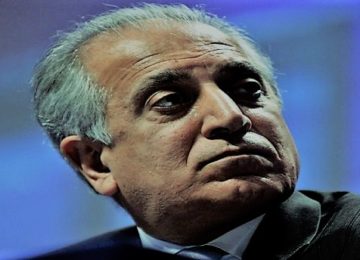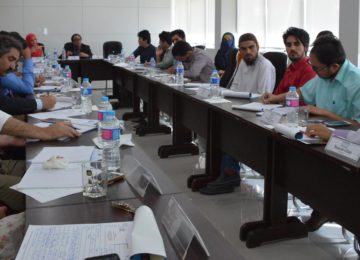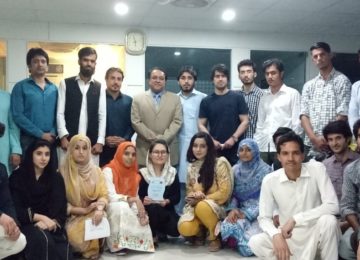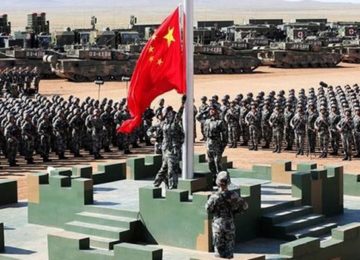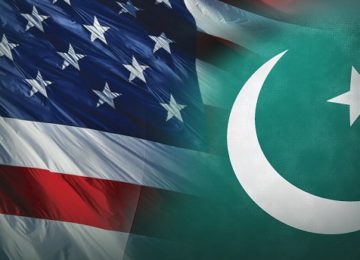The Center for Research and Security Studies (CRSS) conducted its second Pak-Afghan Youth Dialogue under its initiative Afghan Studies Center on Monday, July 24, 2017 in Islamabad, on the theme “Role of Electronic, Print and Social Media in Pakistan and Afghanistan Relations: The Youth Perspective.” It was attended by fourteen participants, comprising Afghans and Pakistanis, some of whom had traveled from Gujrat, Lahore, Peshawar and Bajaur Agency, especially to participate in the dialogue. Senior Journalist Mr. Tahir Khan was invited as the chief guest from Pakistan while Mr. Mozammil Shinwari, former Afghan Deputy Minister for Trade and Commerce and Mr. Danish Karokhel, Editor-in-Chief and Director, Pajhwok Afghan News, addressed the participants via Skype calls from Afghanistan. CRSS Executive Director Mr. Imtiaz Gul and Mr. Aized Ali, Project Director-CRSS’ Pakistan-Afghanistan Track 1.5/II project Beyond Boundaries, were also present.
The dialogue began with Mr. Imtiaz Gul welcoming the participants and expressing his grief over the tragic bombing in Kabul that day. He stressed that the aim of the forum was to sow the seeds of friendship and build a positive understanding between the peoples of both countries at a time when misunderstandings and mistrust continue to wreak their bilateral relations. He also highlighted the significance of youth forums particularly in serving as a bridge between the people of the two countries and in alleviating the ongoing hostility. The role of media and, particularly, the social media, he stated, has prime importance in fabricating perceptions in the masses and in our bilateral relations in contemporary times.
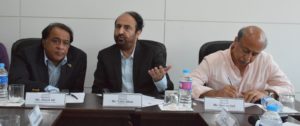
Mr. Tahir Khan, who has been reporting on Pakistan and Afghanistan affairs for many years and had been invited as the Chief Guest, welcomed the participants and expressed his optimism in the youth of both countries to take forward the message of peace. He encouraged the participants to speak their minds and use the social media to spread constructive messages and play a positive role. He informed the participants that irresponsible behavior of media persons on both sides of the border is often the cause of ruining the efforts of peace and friendship. With that, he was also positive that there are still peace loving people on both sides who continue to work for arresting peace and improving bilateral relations. However, youth being the biggest population chunk both in Afghanistan and Pakistan, should take the responsibility to play their part in this collective effort sincerely and robustly.
Mr. Aized Ali, who was moderating, opened the floor for discussion. The discussion began with participants from both sides sharing their insightful views on the role of media of all forms in shaping perceptions between the two countries.
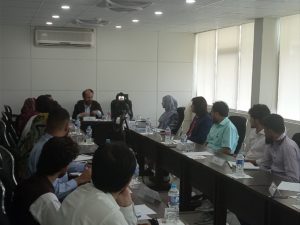
During the discussion, the participants were connected through live Skype calls with Mr. Danish Karokhail and Mr. Mozammil Shinwari from Afghanistan. The participants posed them with questions regarding what the media, including the social media, can do for removing misperceptions that stand in the way of peaceful brotherly relations between the two neighboring countries. Mr. Mozammil Shinwari encouraged the participants on their eagerness and emphasized on the need for more similar forums for the youth to come forward and raise their voices. He stated that it was time the youth should take responsibility and break the stalemate by engaging positively in serving as a connection between the two nations. Collectively, the youth have common interests, he said, and thus ought to join hands in creating a better future. Pakistani media channels, especially Pakistani dramas should be broadcast in Afghanistan, he further stressed. Commenting on a query about the hatred and negativity propagated on the social media among the two countries, he was of the opinion that it is because the two are politically not on a good track. “Once we overcome political impediments, it will have a positive impact on the social media as well,” he said. While Mr. Danish Karokhel stated that the youth, civil society and media should put pressure on their respective governments to adopt positive narratives and cooperative measures with each other.

During the debate, both Pakistani and Afghan participants highlighted the irresponsible role played by the rating-focused electronic media on both sides in shaping narratives and perceptions in bilateral relations. Some participants particularly pointed out the impact of the choice of words in the media in molding the mindset of the ordinary people, stating that responsible reporting could correct many misperceptions in both countries. Fawad Ali Noori, an Afghan participant, for example, pointed out how the media indifferently uses the words “Halaak” (meaning killed) and “Shaheed” (meaning martyred) without respecting the emotions of the general public.
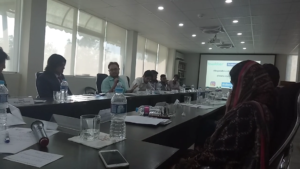
Others highlighted that while the Afghan media broadcasts several Indian TV channels, there is none from Pakistan except Geo News which leaves the ordinary Afghans with little to view Pakistan as a country, other than from Indian or Afghan news sources. The participants urged the media houses of both countries to broadcast Pakistani and Afghan TV channels on both sides.
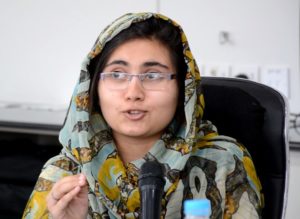
Ms. Ayesha Zakir, a Pakistani participant suggested that social media can be used positively as it is an open forum which makes it very different from other media sources. “We (the youth) should post pictures, messages and stories of commonalities. The youth should explore each other’s culture,” she said.
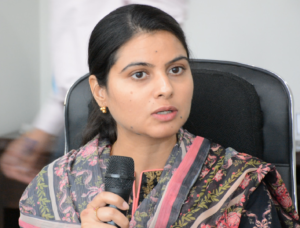
Another Pakistani participant, Ms. Fehmeeda Khalid told the group that 150 Indian journalists are working inside Afghanistan and there is not a single Pakistani channel there. “This is how narratives are built. Afghanistan’s engagement with India should not be a matter of concern for us. Rather, Pakistan should engage positively with Afghanistan without an India-centric approach,” she said.
Muhammad Ilyas, an Afghan member, raised very critical points regarding the standard of freedom of speech in the media. “Who will make standards of freedom of speech should be clarified,” he stated. As for now, freedom of speech is an ambiguous concept which can be molded differently according to the need.
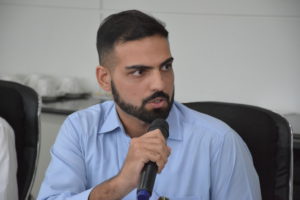
Talal Raza, a young Pakistani participant who runs a peace blog, raised a very important point regarding the need to target fake news alerts on the internet and urged the youth to do their own research before believing anything on the social media.
While the session was still on, there was a terrorist attack in Lahore. The participants and CRSS team strongly condemned the two attacks in Kabul and Lahore, stressing the need for better joint measures at government level to tackle the deadly menace of terrorism faced by both countries.
The participants appreciated the efforts of the Center for Research and Security Studies for providing the youth of Pakistan and Afghanistan the platform to engage in constructive discussions to bridge the increasing gap between the two peoples.
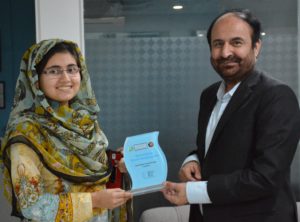
The session concluded with participants sharing their recommendations for the media of both countries and adopting a resolution to play their role as proactive youth to promote messages of peace, cooperation and friendship between the two neighbors using the platform of social media. Among the participants, Ms. Ayesha Zakir from Pakistan was nominated and awarded the shield for Pak-Afghan Youth Ambassador. In the previous dialogue, Mr. Fawad Ali Noori from Afghanistan was nominated and awarded the shield.
The session was part of the ongoing series of Pak-Afghan Youth Dialogue initiated by CRSS’ Afghan Studies Center which is aimed at promoting academic, cultural and sports exchanges between the youth of Pakistan and Afghanistan, and creating young leaders who can become advocates of peace in the region.
The session ended with a group photo and an announcement that the next session will be held in August.
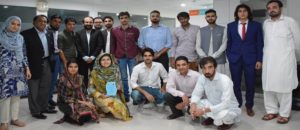
To view more pictures, click here.




